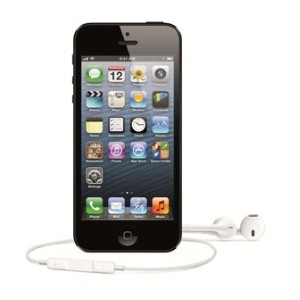Many small businesses have adopted software solutions to help them manage their client base, develop and manage budgets, and improve overall operational efficiency. Computers are still being used in the office, but instead of bulky desktop units, a number of employers are using laptops, tablets and smartphones to run the software and to allow for a more mobile workforce. For example, more than ever, accounting firms are relying on budgeting software in the cloud, while sales teams are using mobile apps to improve collaboration throughout the company. Here are a few tips for small business owners ready to make the leap to managing a mobile workforce.
Create a bring your own device policy
Small business owners that want to save costs on hardware are allowing their staff to bring their own devices to the workplace. Employees are often more productive when able to use their own devices, and it also has been proven that many employees are more willing to put in extra time when when given the flexibility to work outside the office.
Drafting a BYOD policy will set some rules and standards in the workplace that may reduce the likelihood of inappropriate device use. A good BYOD policy will include what devices are allowed, how devices will be secured, who owns apps purchased for work purposes and an exit strategy for when an employee leaves his or her job. Having a strong BYOD policy will leave no grey area for employee-owned devices used in the workplace.
Enforce policies on every employee
One of the benefits of permitting employees to use their own devices is that tasks can be completed quicker and more efficiently, as employees don't have to be tied to their work computers to work on projects.. While the advantages are clear, it is important that employees follow along with the policy. Security risks simply post too much danger for small businesses to have a lax attitude about proper device use. Management must create and enforce penalties for noncompliance in order for employees to take BYOD policies seriously.
Ensure the security of data
Small business owners often have to put more of a focus on customer service and satisfaction than larger companies. Keeping this in mind, they need to make sure data that is stored on their employees' devices is kept safe from hacking efforts. In order to have the proper defense mechanisms in place, small business owners can invest in mobile apps and security software.
Introduce mobile and cloud-based software
BYOD policies are most effective when internal portals and software can be used just as efficiently on mobile devices as they can on computers used in the workplace. By enabling multi-platform functionality and PC-mobile crossover capabilities, small business owners will be confident that mobile employees will be able to complete tasks on the go. Making things easier for their customers is also possible through mobile apps and software solutions. Using mobile and cloud-based software solutions, small firms will be able to experience improved collaboration across teams. For example, companies that introduce certain cloud-based business planning software can simultaneously have one team work on parts of the budget, while another team works on other sections. All the while, each team may be able to see in real-time the changes that are occurring, which can help eliminate confusion. With BYOD-friendly tools
and tactics, companies don't have to sacrifice trade quality for convenience.
var addthis_config = {services_compact: ‘facebook,twitter,linkedin’}

